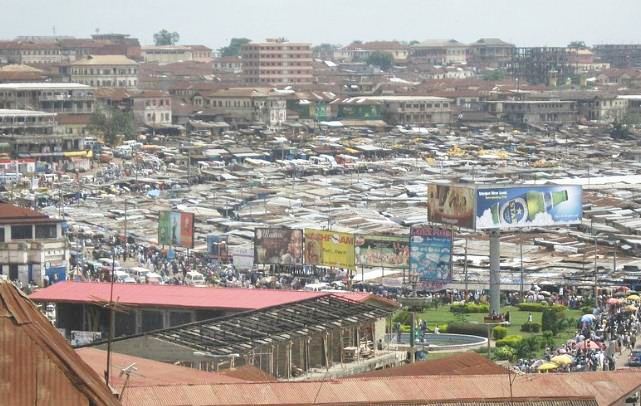The Ashanti Regional Minister, Simon Osei-Mensah, says the Phase One of the New Kumasi City Market (Dubai) is ‘problematic’ and that the project has resulted in congestion around the Central Business District (CBD) of Kumasi.
According to him, Kejetia was originally meant for lorry operations, accommodating over 1,000 vehicles, however, the redevelopment of the place by the former regime has changed the narrative.
To him, the situation is now causing more harm than good to the residents of Kumasi, Ashanti region and Ghana as a whole.
He does not understand why over eight thousand shops should be constructed at the lorry park without any designated parking spaces.
Osei-Mensah made these remarks during the Ashanti Regional Coordinating Council Sector Briefing on Infrastructure Development in the Ashanti Region, which was attended by MMDCES, Coordinating Directors, Transport Operators and the Clergy amongst others.
The event was held at the Prempeh Assembly Hall.
Touching on the construction of the Phase Two of the Kumasi City Market, Simon Osei-Mensah noted that the poor construction of phase one has compelled authorities to make some amendments, as far as the planning of the second phase was concerned.
“We had to change the plan for the phase two so that the ground floor will be used for parking of vehicles to sanitise the CBD.
On challenges, which led to the late completion of the project, the Ashanti Regional Minister noted that the outbreak of Covid-19 affected the disbursement of funds earmarked for the second phase of the project.
He, however, assured the gathering that the challenge had been addressed and that the Contractor has mobilised resources to resume work.
Wading into politics, the Ashanti Regional Minister debunked assertion that the phase one of the New Kumasi Market was completed by the opposition National Democratic Congress (NDC) when they were in power.
“NDC started the Kejetia Phase One Project, but they did not complete it”, he insisted.
According to him, if NDC had completed Dubai market, they would have allocated the shops to traders, which was never done.








